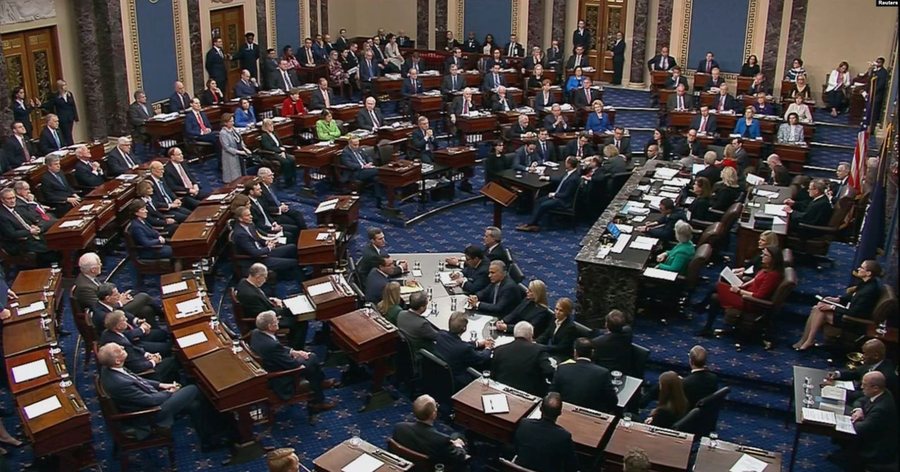
The Senate on Wednesday approved a bill that paves the way for a significant pay increase for new enlisted troops and boosts overall military spending to $895 billion, while removing financial coverage for gender reassignment medical treatments for service members' children. of the armed forces.
The budget bill typically receives strong bipartisan support and has consistently passed Congress in nearly six decades, but in recent years it has become a battleground on social issues.
The bill "is not perfect, but it includes some very good issues that Democrats have been fighting for," Senate Majority Leader Chuck Schumer said. "There are measures on how we can oppose the Chinese Communist Party from the point of view of national security."
In the House of Representatives, a majority of Democrats voted against the bill last month after Republican House Speaker Mike Johnson insisted that the bill include removing coverage for medical sex-reassignment treatments for children. The law passed easily with 281 votes in favor and 140 against.
Senate Republican leaders argue that a 1 percent increase in defense spending is not enough, especially at a time of global instability and when American dominance is being challenged.
Senate Republicans have championed the idea of boosting defense spending this year and plan another push for more funding after they take control of the White House and Congress next year.
The annual budget determines the Pentagon's key policies, but it must also be supported by other legal acts.
The bill provides for a 14.5 percent pay increase for newly enlisted troops and a 4.5 percent increase for others. Lawmakers said such an increase is essential to improving the quality of life for the armed forces at a time when many military families rely on government assistance programs to make ends meet.
The legislation directs resources toward a more confrontational approach toward China, including creating a fund that could be used to send military resources to Taiwan, the same way the United States has supported Ukraine. Also, investments in new military technologies, including artificial intelligence, and increased production of ammunition in the United States are foreseen.
In recent years the United States has also made efforts to prevent the military from buying Chinese products, and the defense bill expanded that by banning goods from garlic to drone technology.
The Chinese Foreign Ministry responded to this development by calling the ban ridiculous.
"I don't think it would ever occur to Garlic that it would pose a 'big threat' to the United States," said Mao Ning, a ministry spokeswoman.
The United States says that ranging from "drones to cranes, from refrigerators to garlic, more and more products made in China pose a risk to national security."
But has the United States provided any credible evidence to support these allegations?
In Congress, Republican and Democratic lawmakers have been largely united in their view that China poses a growing threat. But what divided lawmakers were the culture war issues in the bill, which took months to negotiate.
The Republican-controlled House of Representatives passed a version of the bill in June that, if signed into law, would have barred the Defense Department from reimbursing service members who travel to another state to have an abortion. provided health care for transgender children of military families, and eliminated diversity initiatives in the military.
Most of those proposals were not included in the final bill, but Republicans expect President-elect Donald Trump to make sweeping changes to Pentagon policy after he takes office in January.
The bill also bans funding for the military to teach critical race theory that focuses on the relationship between societal concepts of race and ethnicity, bans health coverage for gender reassignment treatment for children under 18 if the procedure could result in "sterilization" .
For some Democrats, banning treatments for transgender children — care they said could save lives — was a red line.
In a speech, Democratic Sen. Tammy Baldwin said she has always voted for the National Defense Act (a series of federal laws detailing the annual budget and spending of the US Department of Defense) but would not do so again this year. . She said the policy change for transgender children would affect between 6 and 7,000 families, according to her office's estimates.
"The law has always embodied the idea that there are more things that unite us than divide us, that our service members and national defense should not be politicized."
"Unfortunately, this year it was ignored and everything was done to undermine the rights of our service members and take away the health care their children need," he added. VOA (A2 Televizion)











